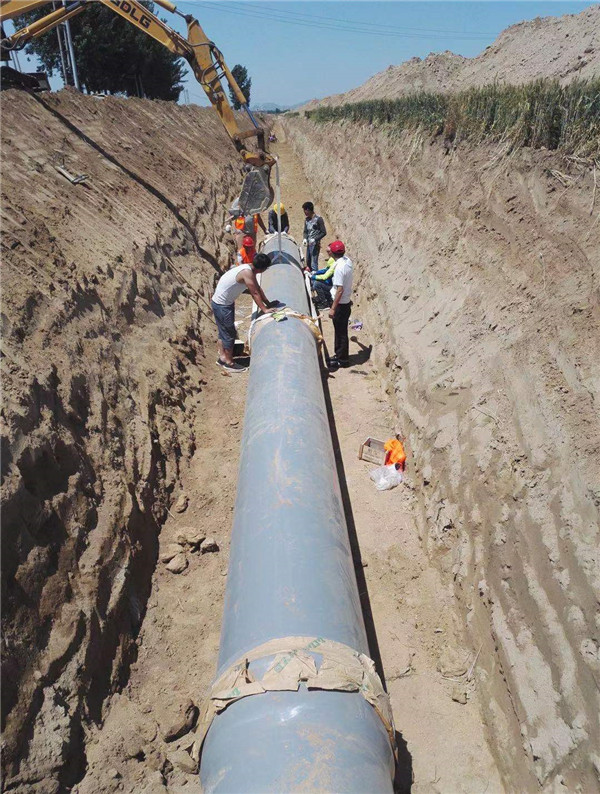Jul . 27, 2024 13:57 Back to list
Exploring the Versatility and Applications of 75mm PVC Pipe in Construction and Plumbing Projects
The Versatile Use of 75mm PVC Pipe
Polyvinyl chloride, commonly known as PVC, is a synthetic plastic polymer widely used in construction and various applications. Among its many sizes, the 75mm PVC pipe stands out for its versatility and functionality. This article delves into the characteristics, uses, and advantages of 75mm PVC pipes, highlighting why they are an essential choice in modern construction and plumbing.
Characteristics of 75mm PVC Pipe
The 75mm PVC pipe is known for its durability and lightweight properties. It is resistant to corrosion, chemicals, and moisture, making it an excellent option for various environments. The pipe has a smooth interior surface that allows for efficient flow and reduces the chances of blockages, thereby enhancing the longevity of plumbing systems. Additionally, the 75mm diameter is ideal for both residential and industrial applications, accommodating a range of requirements.
The production of PVC pipes involves a specific formulation that includes stabilizers and additives, ensuring the material remains stable across different temperature ranges. This stability is crucial, especially in areas where temperature fluctuations are common. With a good resistance to impact and a lengthy lifespan, a properly installed 75mm PVC pipe can last for decades, providing substantial value.
Applications of 75mm PVC Pipe
75mm PVC pipes are used in a variety of applications, primarily in the realm of plumbing, drainage, and irrigation systems. In plumbing, they are suitable for carrying potable water, making them an essential component in residential buildings. The lightweight nature of 75mm PVC pipes also simplifies transportation and installation, reducing labor costs and time.
75mm pvc pipe

In drainage systems, these pipes serve as conduits for waste materials and liquids. Their resistance to chemicals means they can safely transport a range of fluids without risk of degradation. Similarly, in agricultural settings, 75mm PVC pipes are frequently utilized for irrigation, allowing farmers to efficiently distribute water to crops. This adaptability makes them invaluable in promoting efficient water use and management.
Moreover, these pipes are also employed in electrical applications. PVC conduits are used to protect electrical wiring from environmental hazards, ensuring safety and reliability. The non-conductive nature of PVC further enhances its suitability in such roles, making it a preferred choice for electricians.
Advantages of Using 75mm PVC Pipe
One of the most significant advantages of using 75mm PVC pipe is its cost-effectiveness. Compared to alternative materials like metal or concrete, PVC pipes are generally more affordable, which is especially beneficial for large-scale projects. Their lightweight nature leads to reduced shipping costs and easier handling on-site.
Another major benefit is the low maintenance required for PVC pipes. Their resistance to corrosion and any degradation over time means that once installed, they require minimal upkeep, allowing homeowners and businesses to save on maintenance costs. Additionally, PVC is environmentally friendly, as it can be recycled at the end of its life cycle, contributing to sustainable practices in construction.
Conclusion
In conclusion, the 75mm PVC pipe serves as a critical component across various applications due to its unique properties and benefits. Its durability, resistance to corrosion, and ease of installation make it a preferred choice in plumbing, drainage, irrigation, and electrical work. As industries continue to seek cost-effective and sustainable materials, the demand for PVC pipes, particularly the 75mm variant, is likely to remain strong. By prioritizing such versatile solutions, builders and homeowners can ensure reliable and efficient systems that stand the test of time.
-
Durable PP Rigid Sheet: Lightweight, Chemical Resistant Solutions
NewsAug.21,2025
-
PVC Grey Sheet for Extraction: Chemical Resistant & Durable
NewsAug.19,2025
-
Durable PVC Pipe Fittings for Plumbing & Irrigation Needs
NewsAug.18,2025
-
HDPE Steel Belt Reinforced Spiral Corrugated Pipe | High Strength
NewsAug.17,2025
-
HDPE Pipe Fittings: Durable, Leak-Proof Solutions
NewsAug.16,2025
-
Premium CPVC Sheet: High-Temp & Chemical Resistant Solutions
NewsAug.15,2025

